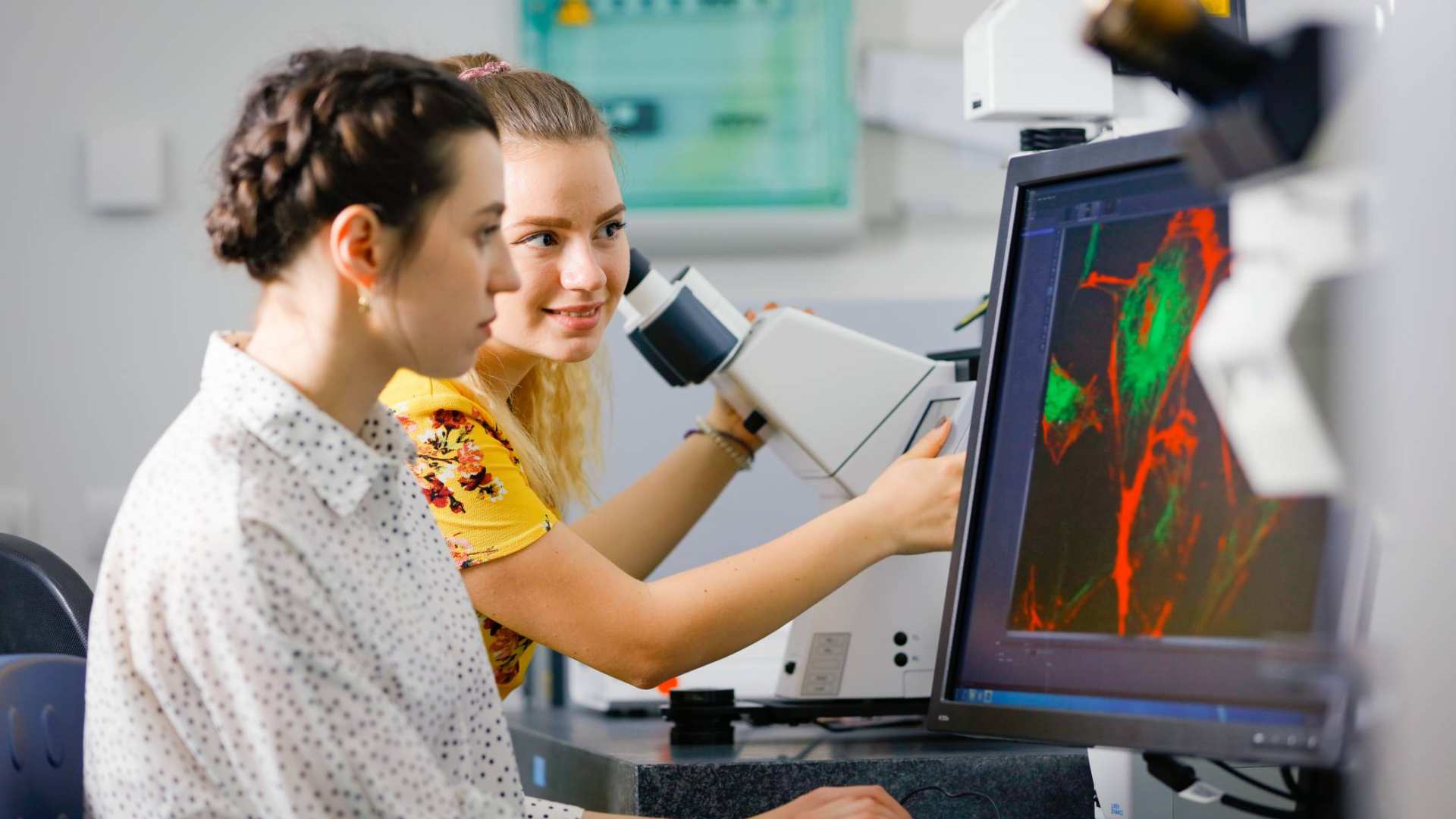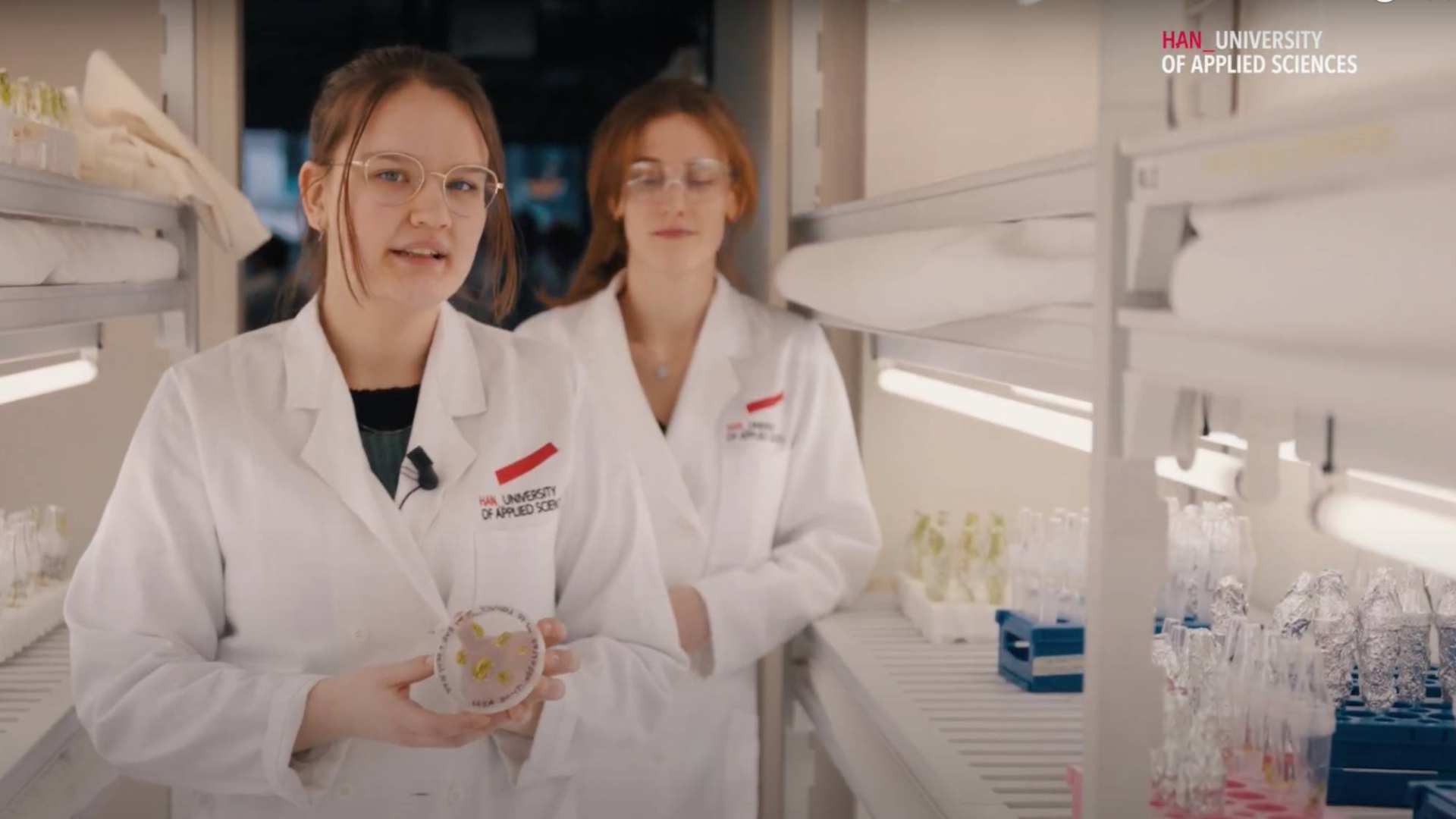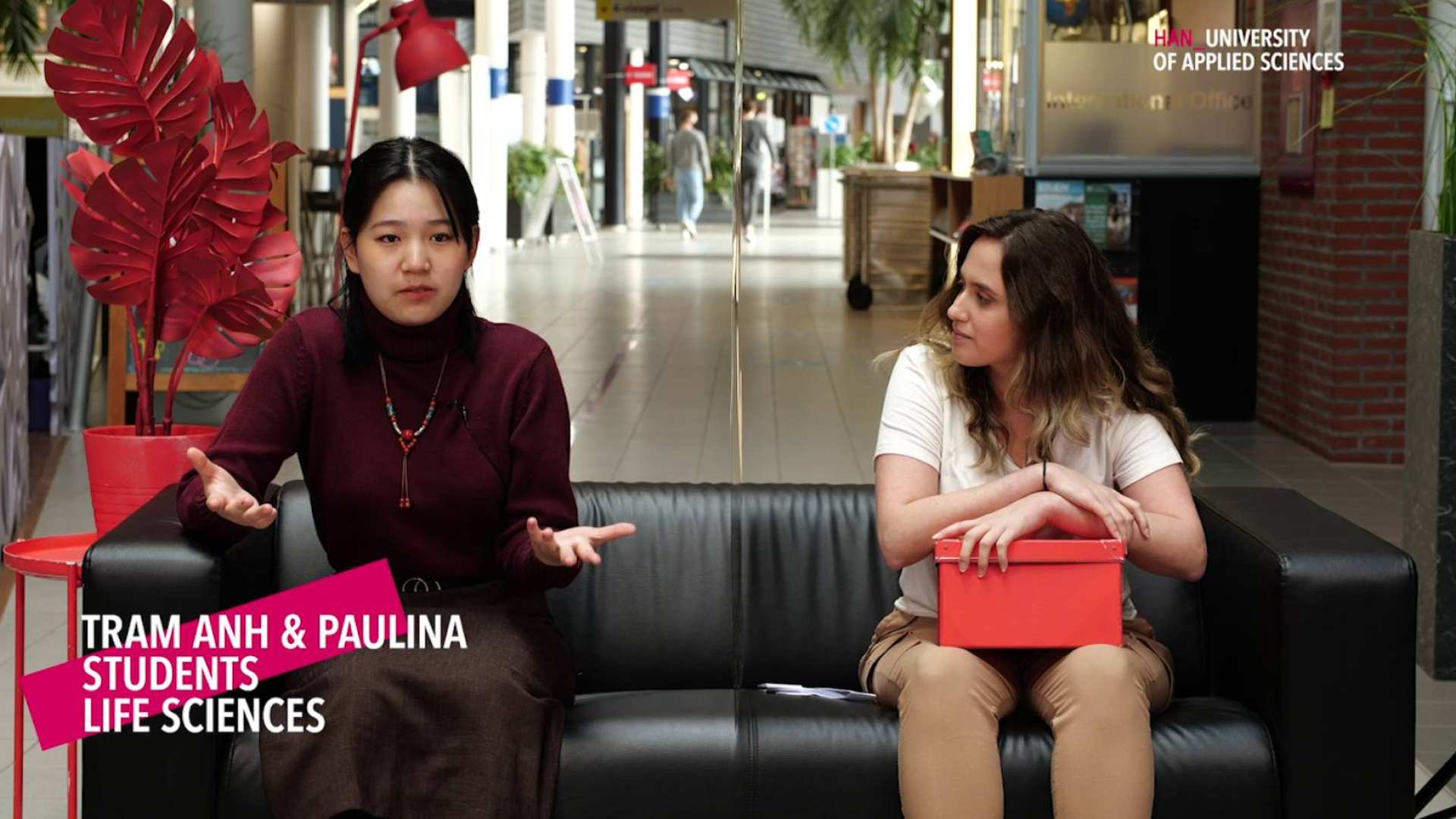Program
The Joint Degree Molecular Biosciences is geared to industry needs, both in the Netherlands and the UK. Naturally, working in an international environment is key in this program. You get the skills employers are looking for: Lab skills. Research skills. Communication skills. Entrepreneurial skills.

Molecular Biosciences: program in brief
A BSc with Honours in Molecular Biosciences at HAN and University of Dundee (UoD) guides you through current research topics in life sciences. You explore a range of chemistry and biology topics. Like molecular biology, cell biology, microbiology, biochemistry and biotechnology.
At HAN (years 1 and 2), you get loads of practice in a life science oriented lab. There you work on group projects. Delve into the latest issues in the field. Boost your problem-solving skills. Become a better communicator.
At UoD (years 3 and 4), you will dive deeper into the theory of drug development, gene regulation and immunology (to name a few). You will also develop entrepreneurial skills and you cap it off with a valuable professional experience in an internship.
In short, this program opens doors to a rewarding international career.
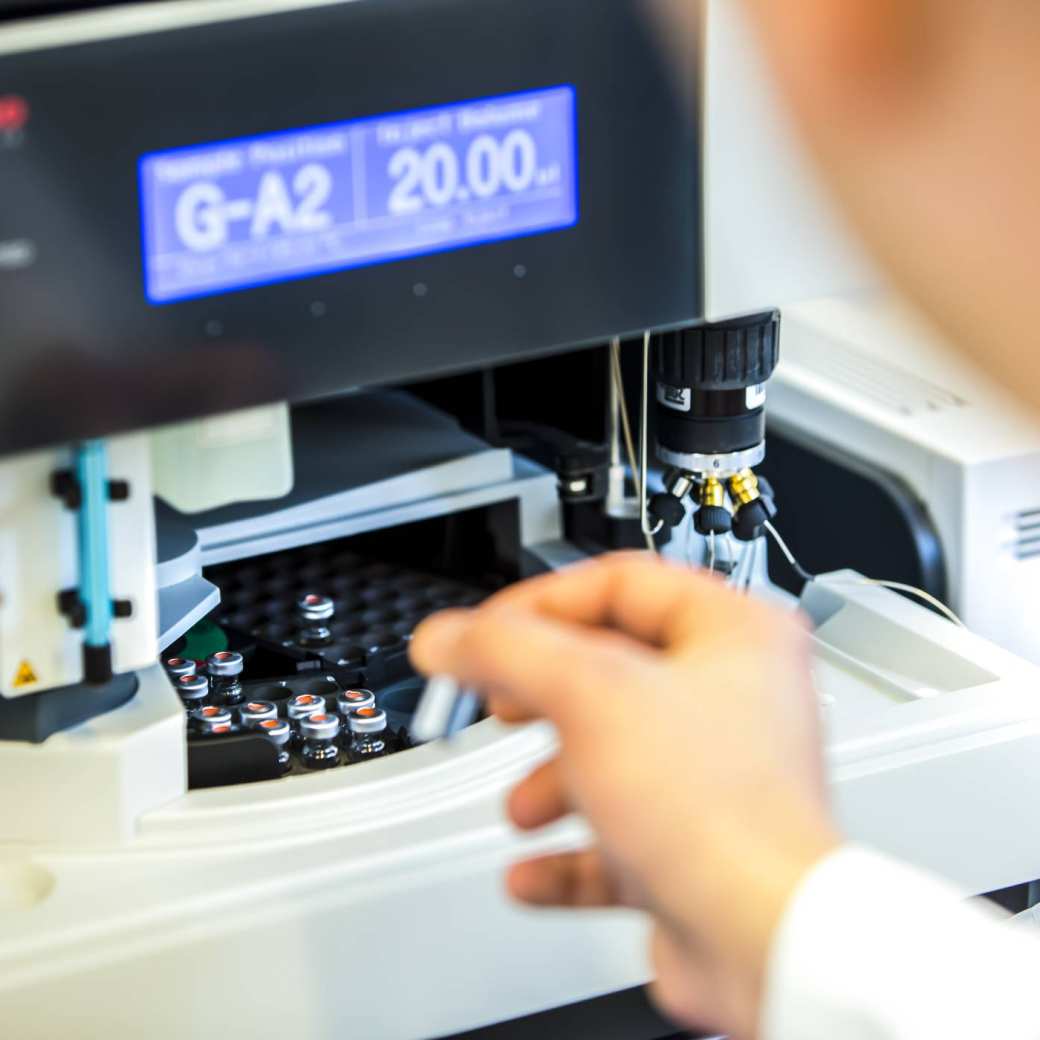
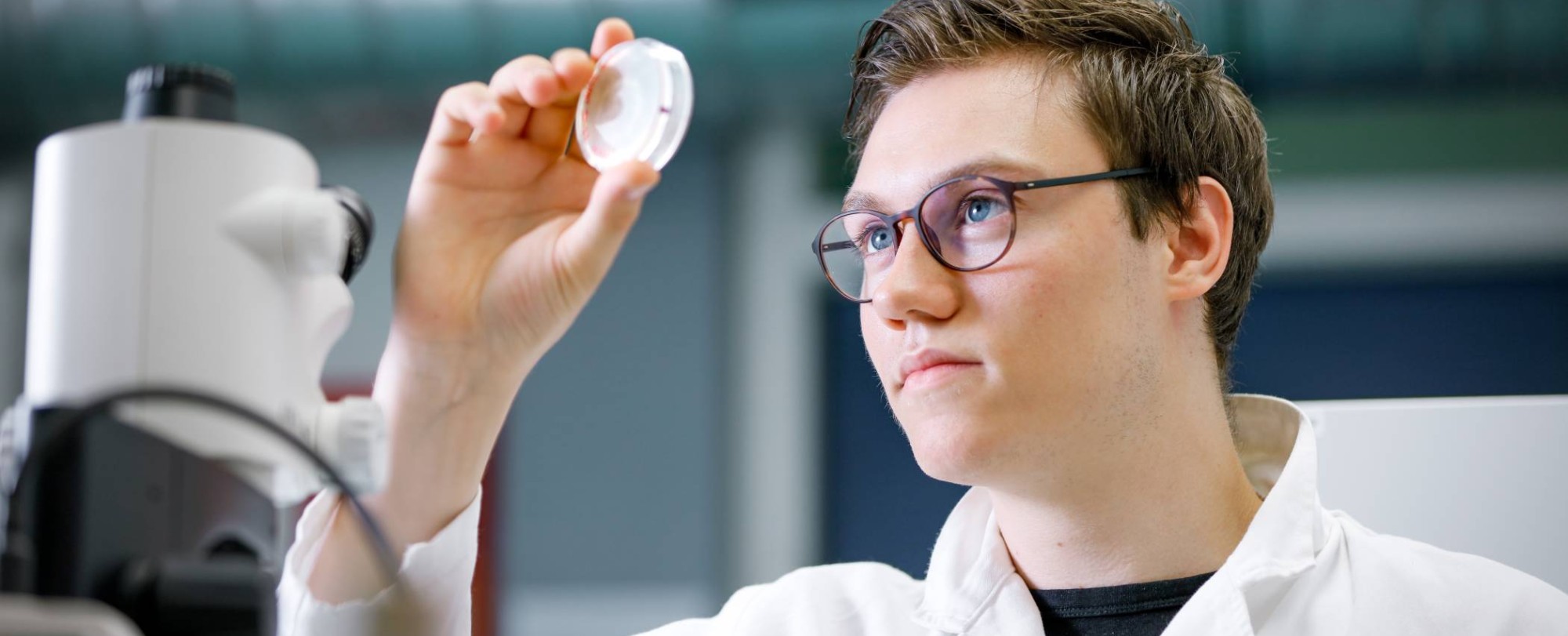
Solid foundation
Your 1st year gives you a solid foundation in the fundamental theories and techniques for the life science lab.
1st-year courses
You learn about the relevant topics in biology, chemistry and mathematics. You also work on group projects in the lab. For example, projects on cancer research, diagnosis of diseases and alternative energy sources. And you work in a professional life science lab during your mini internship.
Academic calendar
The academic year runs from September to August. In that time you have 42 weeks of education. The rest of the time you have holidays.
PERSONALIZED GUIDANCE
At HAN you have a study coach. That's a lecturer who helps you with all your questions related to the study. In the 1st year you'll have weekly classes with your study coach. Since we believe in personalized guidance, multiple personal talks are scheduled throughout the year to keep track of your progress.
Credits
HAN uses the European Credit Transfer System (ECTS). This system is part of the bachelor-master structure. ECTS credits are a measure of the workload of a degree program.
TO THE 2ND YEAR? CHECK YOUR STUDY ADVICE!
At the end of 1st year, you receive study advice. The credits you’ve earned are an important factor in this. Positive advice means you can move on to the 2nd year. Negative advice means you have to stop. That way you don’t waste time on a program that doesn't really suit you.
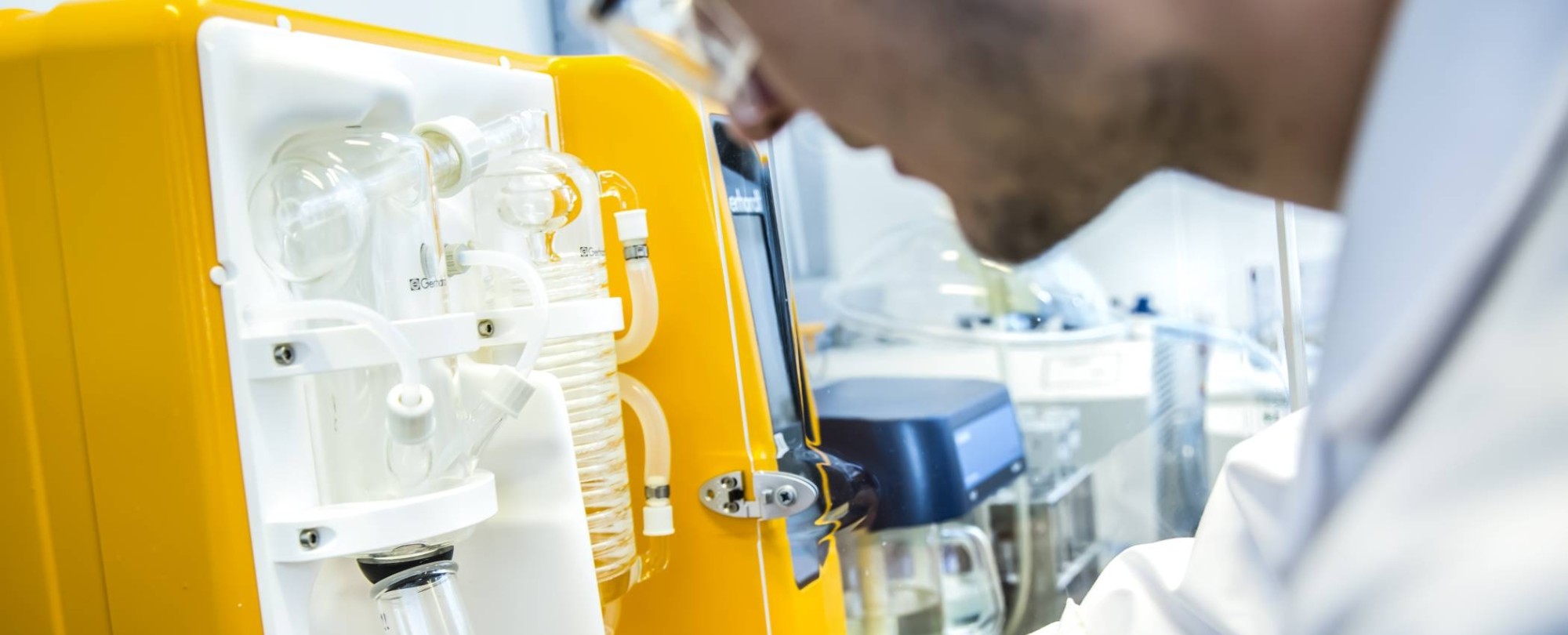
Growing independence
In your 2nd year you enter the main phase of the degree program. By now you’re confident using test tubes, microscopes and Petri dishes. Ready to get to know the profession in-depth? And use your knowledge in real research projects?
2nd year themes and topics
In the 2nd year you focus on 2 main themes. You'll dive into the theory and practical side of all the related topics.
Theme 1: Molecular and biochemical research
- Biochemistry
- Molecular biology
- Cell biology
- Bio-informatics
Theme 2: Interaction between human, plant and micro-organisms
- Microbiology
- Plant biology
- Immunology
- Human biology
- Histology
- Cytology
Lab facilities
HAN has all the basic lab facilities and more. Take the specialized microbiological, plant and biochemical labs. Here you can research DNA, RNA and protein in different organisms. How do you make the cells visible? Using light microscopy, fluorescent microscopy and electron microscopy. You can also do research on cancer. With real-time PCR apparatus, a high-performance plate reader and a flow cytometer. And use our fermentation lab. Ferment bacteria, fungi and yeasts and create your own biological products!
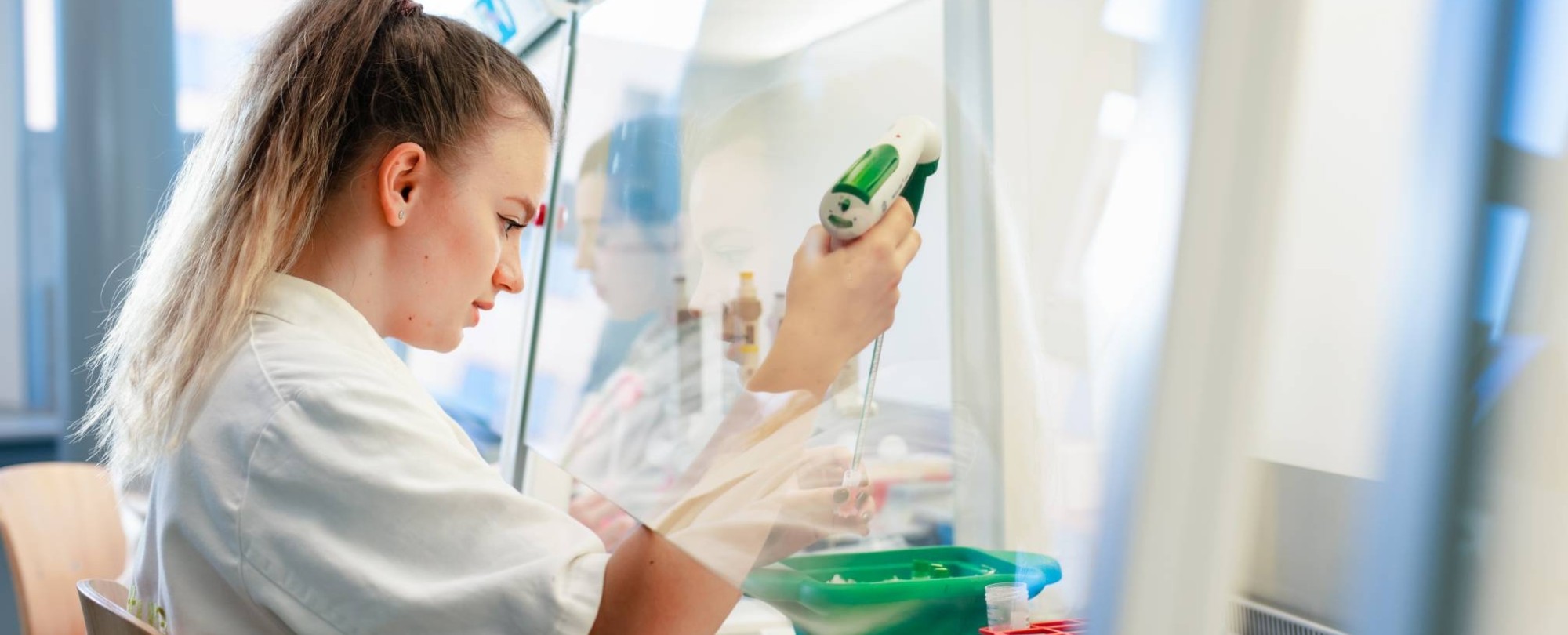
Year 3: Dundee
Things get even more exciting in year 3. You'll move to the UK. And now that you have a solid foundation, it's time to pick modules that interest you.
Subjects in 3rd year
|
In year 3 you'll learn the ins and outs of:
|
|
|
|
|
|
|
|
|
Experience it for yourself!
Want to discover whether Molecular Biosciences at HAN is the right choice for you? Experience it for yourself at an Open Day. Our students and staff look forward to meeting you there!
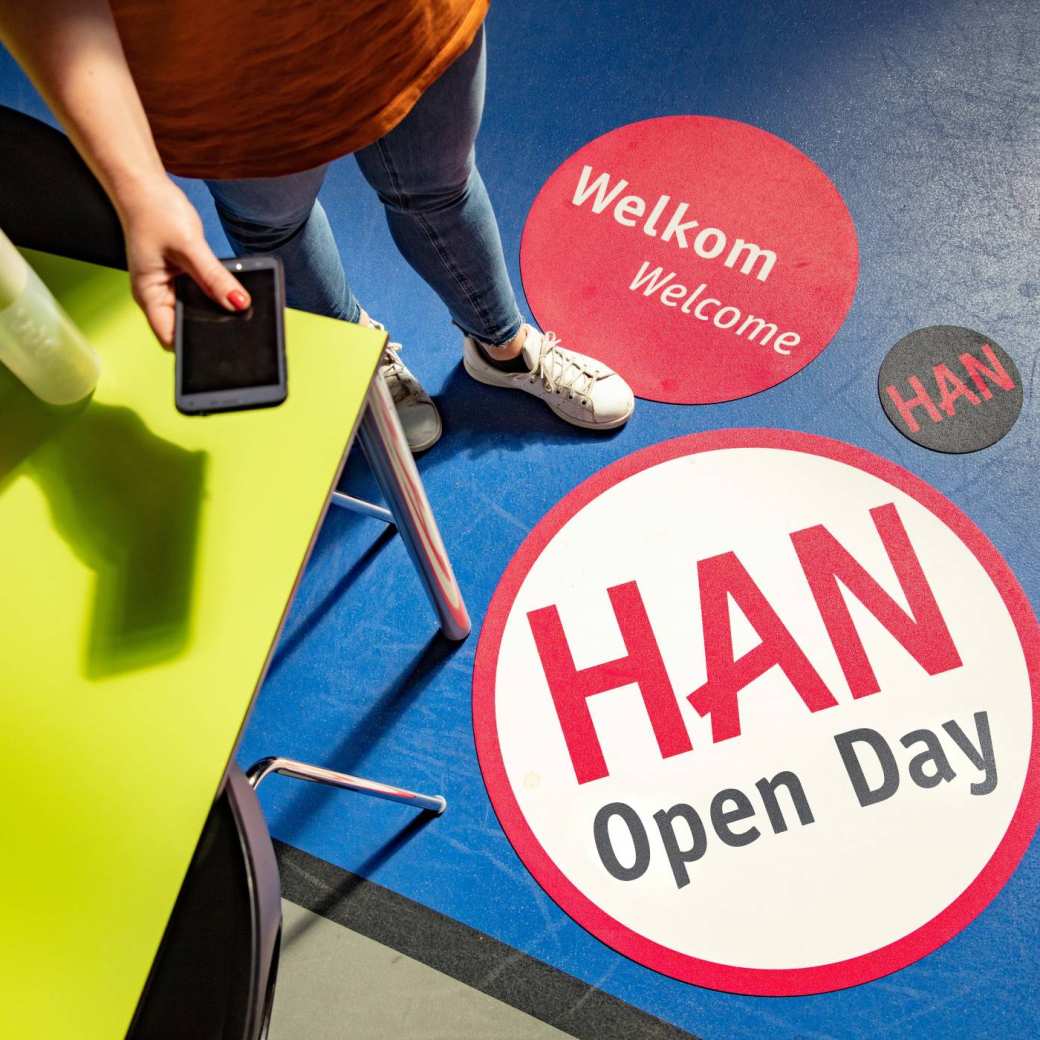
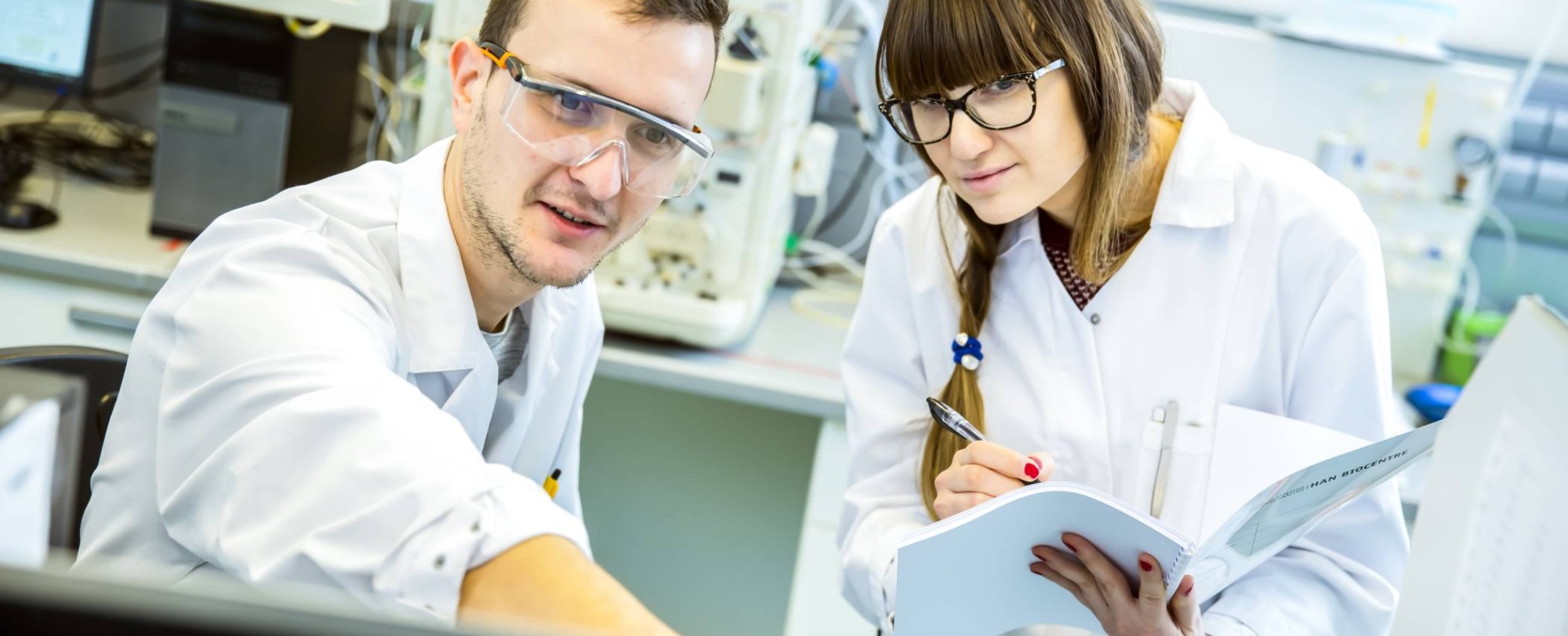
Graduation year
This is the 4th and final year of your BSc with Honours in Molecular Biosciences. This is a semester where you broaden your knowledge. You'll focus on laboratory focused projects. And you embark on your graduation internship.
Graduation internship
The final challenge in your BSc in Molecular Biosciences is your graduation internship. That's where you show all the knowledge you gained during your studies. Where you’ll do your internship? At a company, research institute or hospital. In the Netherlands, the UK or anywhere you'd like!
Bachelor of Science with Honours
After 4 years of study you have earned your Bachelor of Science with Honours in Molecular Biosciences. Congratulations! The program you've completed is issued by both HAN University of Applied Sciences and the University of Dundee. That means you now have an internationally recognized degree. Ready to join an international company? Or continue your studies with a master or PhD? With a BSc with Honours it’s a smooth transition into HAN’s Master in Molecular Life Sciences. Or you could easily continue with a master or even start a PhD in the UK. Up to you!
Bachelor of Science with Honours

Careers
Find out about job opportunities, experiences of alumni and options for further studies in Molecular Biosciences.

